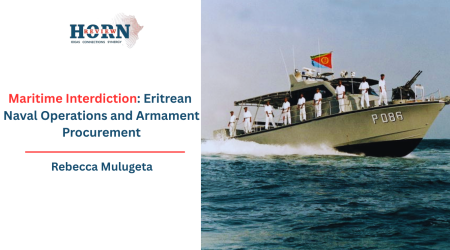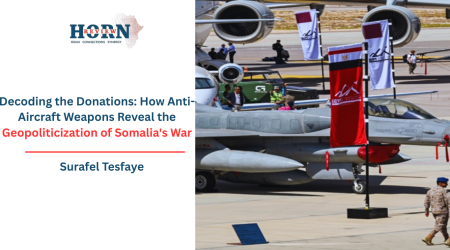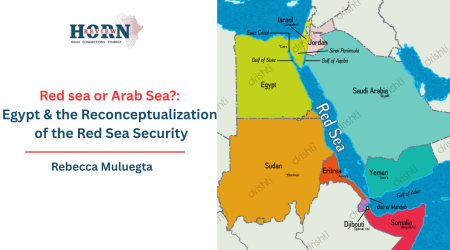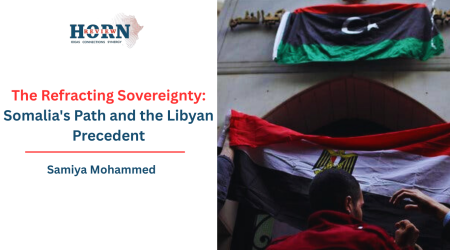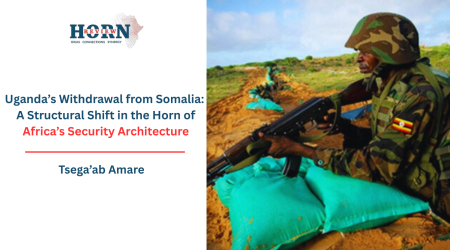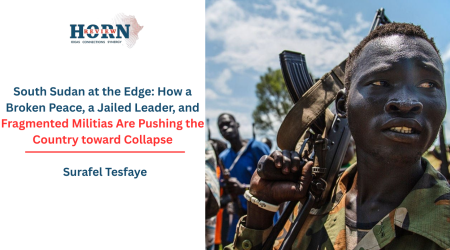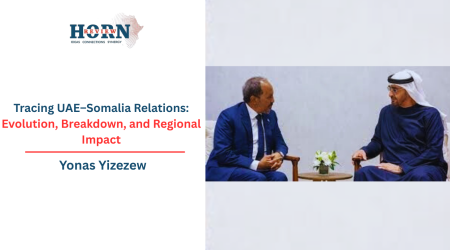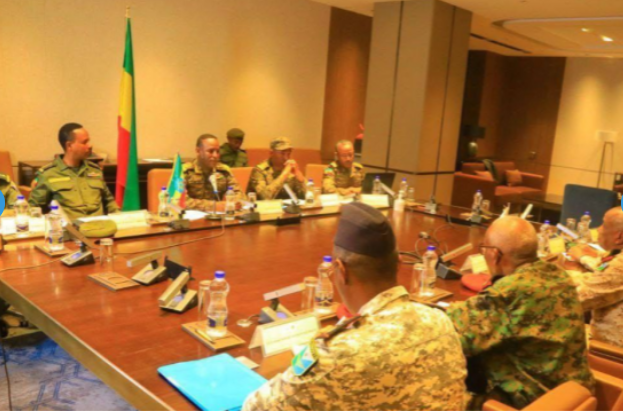
7
Aug
Ethio-Djibouti 11th Joint Defense Committee Meeting: Context & Implications
The regular joint Ethio-Djibouti defense committee meeting was held this week in Addis Ababa. This 11th meeting is expected to put forward strategic goals that enhance the bilateral military cooperation between Ethiopia and Djibouti. The meeting brought together senior military officials from both countries to assess ongoing security cooperation and chart future collaboration. After reviewing peace and security operations agreed upon in the earlier 10th session, the joint committee set strategic directions to enhance bilateral military cooperation. The meeting was co-chaired by senior military officials, including Major General Teshome Gemechu, Director General of Foreign Relations and Military Cooperation at Ethiopia’s Ministry of Defense; Major General Abdurahman Abdi, Advisor to the Chief of Staff of the Djiboutian Armed Forces; and Major General Tesfaye Woldemariam, Ethiopia’s Military Attaché to Djibouti. After his welcoming speech to the Djiboutian delegation, Maj. Gen. Teshome described Ethiopia and Djibouti as nations bound by “ancient, historical, cultural, and economic ties” and referred to Ethiopia as the delegation’s “second home.” In response, Maj. Gen. Abdurahman Abdi expressed appreciation for the hospitality extended by the host country. According to ENDF, this periodic joint defense committee meeting “plays a key role in reinforcing the longstanding relationship and regional security collaboration between the two countries.” Such kinds of meetings are expected to unlock the huge potential for cooperation that the two countries can have.
This meeting will hopefully ease the recent tense relationship and set a new beginning in both the diplomatic and military cooperation between the two countries. Military cooperation with Ethiopia is the most reliable means to improve the capabilities and the influence of small states in the Horn of Africa. Djibouti, on its part, is the most reliable outlet for Ethiopia’s import and export of goods. So, these two countries must prefer to integrate rather than disintegrate their cooperation in terms of diplomacy and military cooperation. No doubt that overcoming external forces’ involvement and interference in the internal politics of these two countries is difficult to grapple with. Yet strategic planning and taking up all the necessary small steps to secure their ultimate long-term interest of coopetition is the only way forward.
Despite some efficiency problems, the economic cooperation between Ethiopia and Eritrea is going well. Extending this cooperation into the defense realm will open up the opportunity for the two countries to unlock their full potential. It is known that Ethiopia needs a foothold in Djibouti to secure its socio-political interest in the unstable region of the Horn of Africa, as the region is tainted by political instability, terrorism, and piracy. Moreover, the region is increasingly tainted by security issues, especially due to the Houthis’ involvement in the Israel-Palestine conflict in the Middle East. Ethiopia must protect itself from the Egyptian threat, and Djibouti is significant both geographically and strategically for this endeavor. Yet Djibouti’s swindling position must be adjusted to secure a long-term relationship, especially since falling into the traps of Egyptian involvement in the region does not serve the mutual interest of Djibouti and Ethiopia.
The crucial problem of Djibouti is a lack of trust in its neighbors’ motives. We can see that Djibouti is a small but influential country in the Horn of Africa, particularly because it has secured strong allies that can defend its sovereignty and economic stability. Understandably, Djibouti needs to employ a strategic approach to compete against greater powers of the region, such as Ethiopia and former Somalia. That is why Djibouti hosts external military facilities to secure economic investment and forge alliances, and thereby increase the nation’s visibility by relying on these foreign bases for the survival of its regime. If Ethiopia or Somalia tries to occupy Djibouti, those who hold a military base will fight back against such an occupation, as it will go against their interest. While an international system that protects the safety of small states should be in place, it is not fair to see global powers competing to control strategic locations across the globe, ignoring the need for neighbors to work together for their peaceful coexistence and economic integration tied mainly to their geographic fate. Djibouti, on its part, must focus on cooperation with its neighbors, rather than being exploited by the global powers.
In any case, the expansion of foreign military bases would not be a long-term guarantee for Djibouti’s secure existence as a sovereign state, but a defense cooperation with its neighbors will rather endure to satisfy the needs of the people in the Horn of Africa. Thus, it is wise for Djibouti to see that the domestic socio-economic and political reality of the Horn of Africa demands cooperation not only in the economic sector but also in the defense realm.
By Markos Haile Feseha (PHD), Researcher , Horn Review

